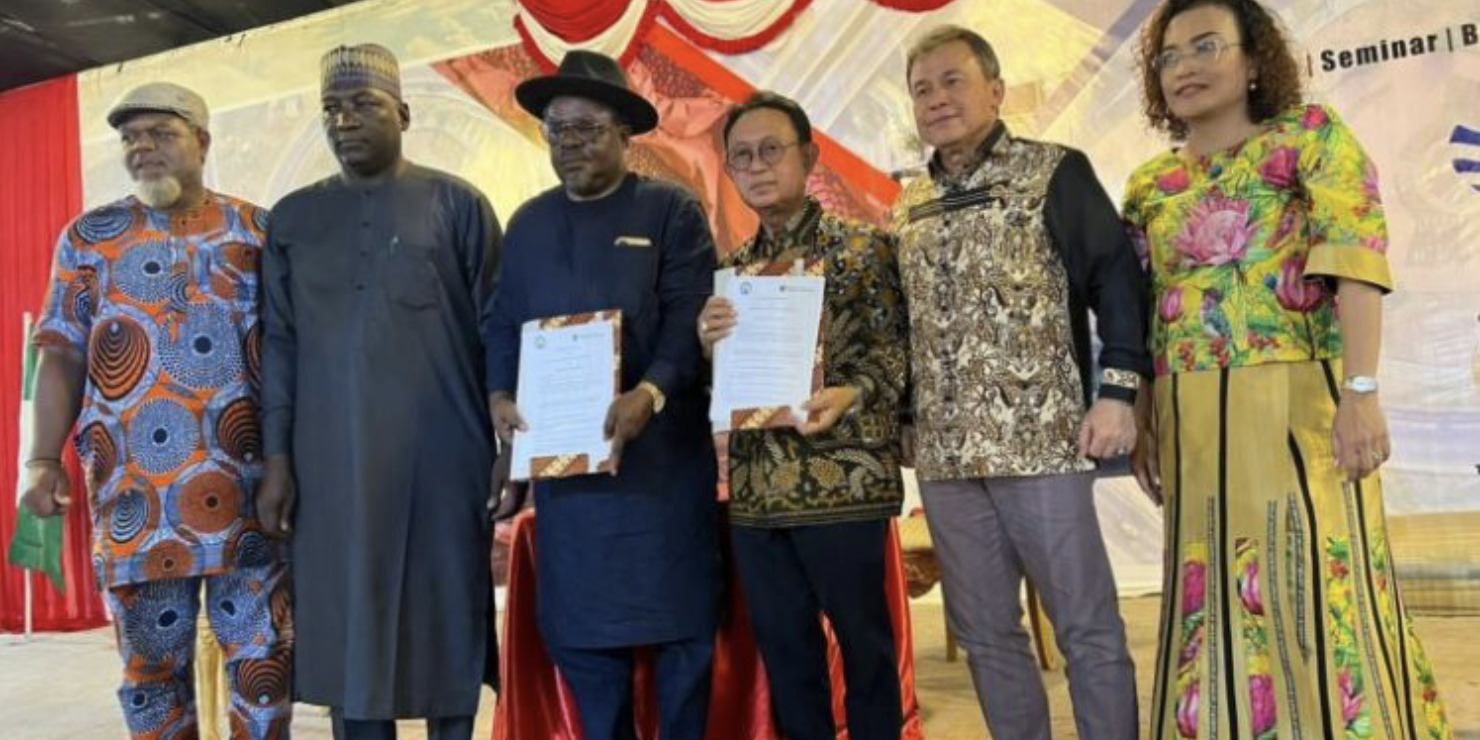Nigeria and Indonesia have signed a Memorandum of Understanding (MoU) aimed at advancing palm oil production and expanding market opportunities, with a focus on modernizing practices and improving income for smallholder farmers. The agreement, signed in Abuja by the National Palm Produce Association of Nigeria (NPPAN) and the Indonesian Palm Oil Association (GAPKI), marks a significant step toward strengthening the palm oil industry in both countries.
Ambassador Alphonsus Inyang, President of NPPAN, emphasized that the MoU would offer smallholder farmers in Nigeria access to vital knowledge, technology, and economic opportunities within the palm oil sector. He highlighted that the agreement is designed to promote growth in Nigeria’s palm oil industry, fostering cooperation that benefits both nations. The initiative is expected to reduce Nigeria’s reliance on traditional farming methods, enhancing productivity and profitability for local farmers.
Mr. Eddy Martono, Chairman of GAPKI, reiterated Indonesia’s commitment to supporting the development of Nigeria’s palm oil industry. He noted that the agreement aligns with Indonesia’s broader strategy of expanding its palm oil market into non-traditional regions, with Nigeria serving as a key strategic partner in this endeavor. Martono underscored the importance of this partnership in strengthening bilateral ties and contributing to the global palm oil market.
Sahabi Muazu, Director of the Indonesian Embassy in Nigeria, expressed optimism that the MoU would catalyze growth in Nigeria’s palm oil sector. He echoed the sentiment that the collaboration would bring significant benefits to both countries, enhancing the industry’s overall performance.
Lolita Bangun, Deputy Secretary-General of GAPKI, pointed to Nigeria’s potential as a lucrative investment destination, drawing parallels with the success of IndoMie in the Nigerian market. She highlighted the growing demand for palm oil in Nigeria, stressing that the MoU is designed to increase palm oil exports to the country. With Indonesia’s expertise and Nigeria’s advantageous geographical position, the partnership is expected to drive substantial growth in the palm oil industries of both nations.
In summary, the MoU between Nigeria and Indonesia represents a strategic effort to modernize palm oil production, expand market reach, and enhance the livelihoods of smallholder farmers. The collaboration is poised to strengthen the palm oil industry in both countries, creating a mutually beneficial relationship that supports economic growth and sustainability.
The Indonesian Palm Oil Association (GAPKI) was founded on February 27, 1981. Its creation was motivated by the desire of Indonesia’s palm oil industry stakeholders to consolidate their efforts under a single organization as the number of industry players grew. Initially, GAPKI brought together 23 palm oil companies, including state-owned plantation enterprises (BUMN), private national and foreign companies, and oil palm farmers organized in cooperatives.
Source: Chem Analyst
Disclaimer
This article may contain copyrighted material, the use of which may not have been pre-authorized by the copyright owner. This material is made available for the purpose of giving information and knowledge. The material contained on the Astra Agro website distributed without profit. If you are interested in using copyrighted material from this material for any reason that goes beyond ‘fair use’, you must first obtain permission from the original source










